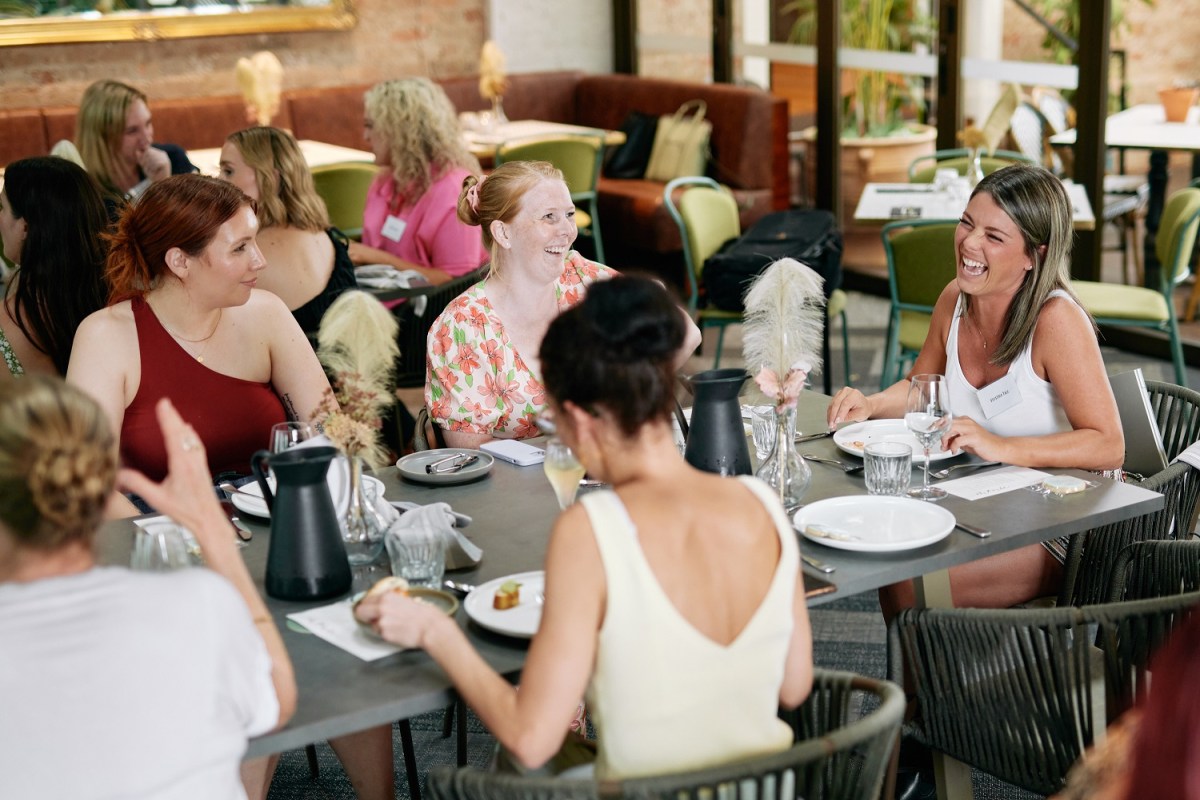Bianca Dawson has brought the HerHospo program to Australian Venue Co (AVC), to seek out the next generation of female-identifying leaders.
Bianca Dawson, AVC’s chief training and development officer, has pioneered HerHospo, a program promoting gender equality across all levels of the group. It falls under AVC’s broader diversity, equity, and inclusion initiative. HerHospo originated when Dawson was at Melbourne’s Sand Hill Road. Upon joining AVC in 2022, one of Dawson’s goals was to bring HerHospo over to AVC, with the enthusiastic support of the existing executive team.
HerHospo is built around three pillars: empower, educate, and inspire. The program consists of regular events, workshops, forums, and a mentoring program.
“It’s really about building a supportive, safe and inspiring community,” Dawson emphasised.
The program is open to all female-identifying employees of AVC. Though some events are capped due to capacity, any woman at AVC is welcome to attend and to participate in the mentoring program.
“We’re really proud that we’ve built the program to a point where people are really keen to get their tickets to come along to particular events or to see particular speakers,” Dawson said.
HerHospo is working to present a full suite of events for the 2023-2024 financial year.
“We’re working with some incredible guest speakers, female farmers, female distillers, brewers, winemakers. In the education piece, we’re working really closely with Minus 18, as well as creating a lot of our own internal programs,” Dawson described. “We’re going to do some work with AFLW and look at some incredibly empowering women across different industries. There’s a range of events coming over the next 12 months which we’re really excited about.”
Developing female leaders
The goals of HerHospo are strongly grounded in data about gender parity within AVC. Obtaining data about gender differences in areas such as staff retention, new hires, and leadership roles allows AVC to determine areas that need attention and to quantifiably measure the program’s success.
“One area we’re really focused on is getting our gender numbers up in our kitchens because we really see that that’s the biggest gap that we have,” Dawson said. “But if we can get our chefs to speak with female farmers or to meet with female cheese makers… They’re obviously incredibly empowering women, but also on the flip side, it’s part of their passion. They’re passionate about food. They can really connect to it.”
HerHospo is also focused on fostering female leaders. Though there are more female duty managers than male duty managers at AVC, women are significantly underrepresented in the higher levels of leadership. The mentoring program is designed to help women reach the leadership roles that they are striving for.
“Leadership is a big focus for us in terms of our female-identifying mentees. It really depends on the area they’re interested in,” Dawson said, “For venue staff, if they want to move into head office roles, we can look at creating their own training path and mentoring them to be able to get there.”
However, even with training and mentoring, some women don’t feel capable of taking on the roles. Events and panel discussions are important in empowering women to actually reach for leadership positions.
“At our HerHospo events, the question I get asked most is how I was the CEO and a mother at the same time. That’s what people want to know because they’re saying, ‘How does that work? I feel like I can’t work in hospo anymore, because if I want to eventually have kids – even if that’s in five or 10 years’ time – I need to now start finding my path to a more balanced lifestyle,’” Dawson said.
Flexible working has proven important to address these concerns, with AVC introducing an option for a four-day work week.
“Whilst the industry has changed, and we no longer have everybody working Tuesday to Saturday doubles, I also think that we’ve got a long way to go,” Dawson continued. “We’re really looking at that flexible work arrangement and what that looks like. It’s not just people who have kids. People have different needs now than they did 20 years ago. Our business has changed and the industry has changed.”
This is an extract from an article originally published in the May issue of Australian Hotelier. Check out the rest of the feature below.

